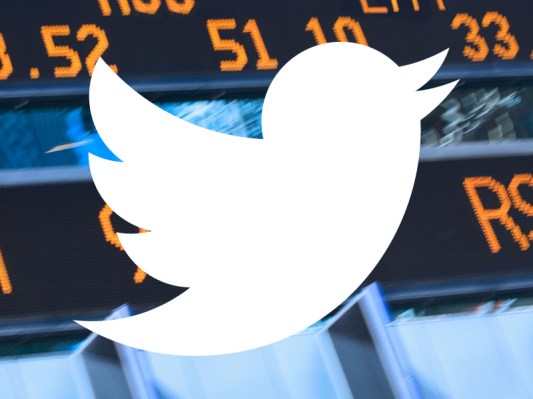As Twitter embarks on its initial public offering roadshow, the company has issued another update to its S-1 today with a curveball. IBM has recently issued a letter to Twitter alleging that it infringes on “at least three U.S. patents” held by IBM, “inviting us to negotiate a business resolution of the allegations.” The disclosure comes at the same time that Twitter has also raised its IPO estimate to $23-25 per share, up from the previous $17-20 — a sign of Twitter’s confidence that despite details like the IBM note, it’s expecting a strong turnout when it lists.
The S-1 filing appears to indicate that although IBM is seeking a settlement over the alleged infringement, it looks like Twitter is ready to defend itself. “We believe we have meritorious defenses to IBM’s allegations, although there can be no assurance that we will be successful in defending against these allegations or reaching a business resolution that is satisfactory to us,” the company writes.
The specific patents in question are U.S. Patent No. 6,957,224: Efficient retrieval of uniform resource locators; U.S. Patent No. 7,072,849: Method for presenting advertising in an interactive service; and U.S. Patent No. 7,099,862: Programmatic discovery of common contacts.
The note appears in an update to the S-1 that offers extended caveats on how patents, copyrights, trademarks and trade secrets are frequently the subject of litigation. Twitter admits that it’s not a strong player in this area.
“Many companies in these industries, including many of our competitors, have substantially larger patent and intellectual property portfolios than we do, which could make us a target for litigation as we may not be able to assert counterclaims against parties that sue us for patent, or other intellectual property infringement,” it writes, with a special flag for trolls: “In addition, various ‘non-practicing entities’ that own patents and other intellectual property rights often attempt to aggressively assert claims in order to extract value from technology companies.”
Although Twitter has shown itself up to now to be a very developer-friendly player in the patent space, it is salvos like IBM’s that may prove to test that resolve, especially as Twitter continues to evolve its service and move into new areas — a point it also makes, adding that right now it’s also potentially liable for claims against its partners and customers, too.
“From time to time we may introduce new products and services, including in areas where we currently do not have an offering, which could increase our exposure to patent and other intellectual property claims from competitors and non-practicing entities,” it writes. “In addition, although our standard terms and conditions for our Promoted Products and public APIs do not provide advertisers and platform partners with indemnification for intellectual property claims against them, some of our agreements with advertisers, platform partners and data partners require us to indemnify them for certain intellectual property claims against them, which could require us to incur considerable costs in defending such claims, and may require us to pay significant damages in the event of an adverse ruling.”
Twitter’s patent disclosures in the S-1 come at a time when the company is rolling out new services around its platform — many of which are effectively data-driven live tests to see what gets people to engage more on the site. The company is also reportedly looking at how it might do more with core products like direct messaging. Given that a large part of its business and audience is already on mobile, this, too, could take the company further into new product areas.
It’s unclear whether IBM would ever take this kind of allegation all the way to filing a suit, or whether it is putting it out there right now in hopes of a sweetheart deal that involves shares in Twitter. IBM is one of the world’s biggest tech patent owners (although recently slipping to No. 2 in mobile after Samsung), and has in the past sold troves of patents to the likes of Facebook, a sign of how social media companies are not immune to the patent race that has largely been the terrain of the mobile industry in recent times.

